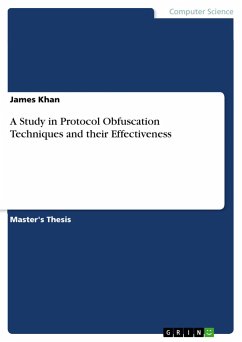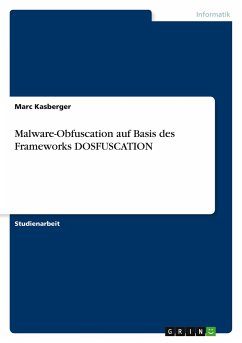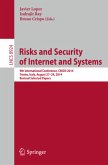Master's Thesis from the year 2017 in the subject Computer Science - IT-Security, grade: 4, Oxford University, language: English, abstract: There are two main reasons for people to hide their network communication. Some want to maintain their privacy, while others need to access resources that might not be available to them due to restrictions applied by a censor. Monitoring of internet usage by the governments is not something new but now many countries have actively started blocking internet content for their citizens. Necessity is the mother of invention. Researchers and developers are working on ingenious ways of bypassing such monitoring and restrictions. In recent years, protocol obfuscation is becoming a burning topic especially because of evolution of some state level censors. Internet users want to freely access resources however censors are deployed by several countries around to world to restrict this access. As the protocol obfuscation techniques are gradually improving and so are the censors. Meanwhile, there are some internet users who do not live in countries that restrict their access to the internet resources in any way but these individuals are concerned about confidentiality of their internet use. Government agencies are frequently in the media over accusations of spying, on their own citizens as well as citizens of other countries, which is making many internet users alarmed about their anonymity. Both censors and circumvention tools are evolving continuously and gradually. The aim of this study was to analyse the protocol obfuscation techniques and systems available to ordinary internet users. The efficiency of these techniques and systems is assessed in the light of available research in respect of detecting obfuscated protocols. Once a research proves that an obfuscation technique can be successfully attacked it makes it easier to implement possible mitigations and the research also provides guidance to the developers of future protocol obfuscation systems so that they learn from the mistakes of others. It was noted that all the protocol obfuscation systems researched in this study are vulnerable to detection. In some cases, the detection does not even require the use of sophisticated resources.
Hinweis: Dieser Artikel kann nur an eine deutsche Lieferadresse ausgeliefert werden.
Hinweis: Dieser Artikel kann nur an eine deutsche Lieferadresse ausgeliefert werden.








